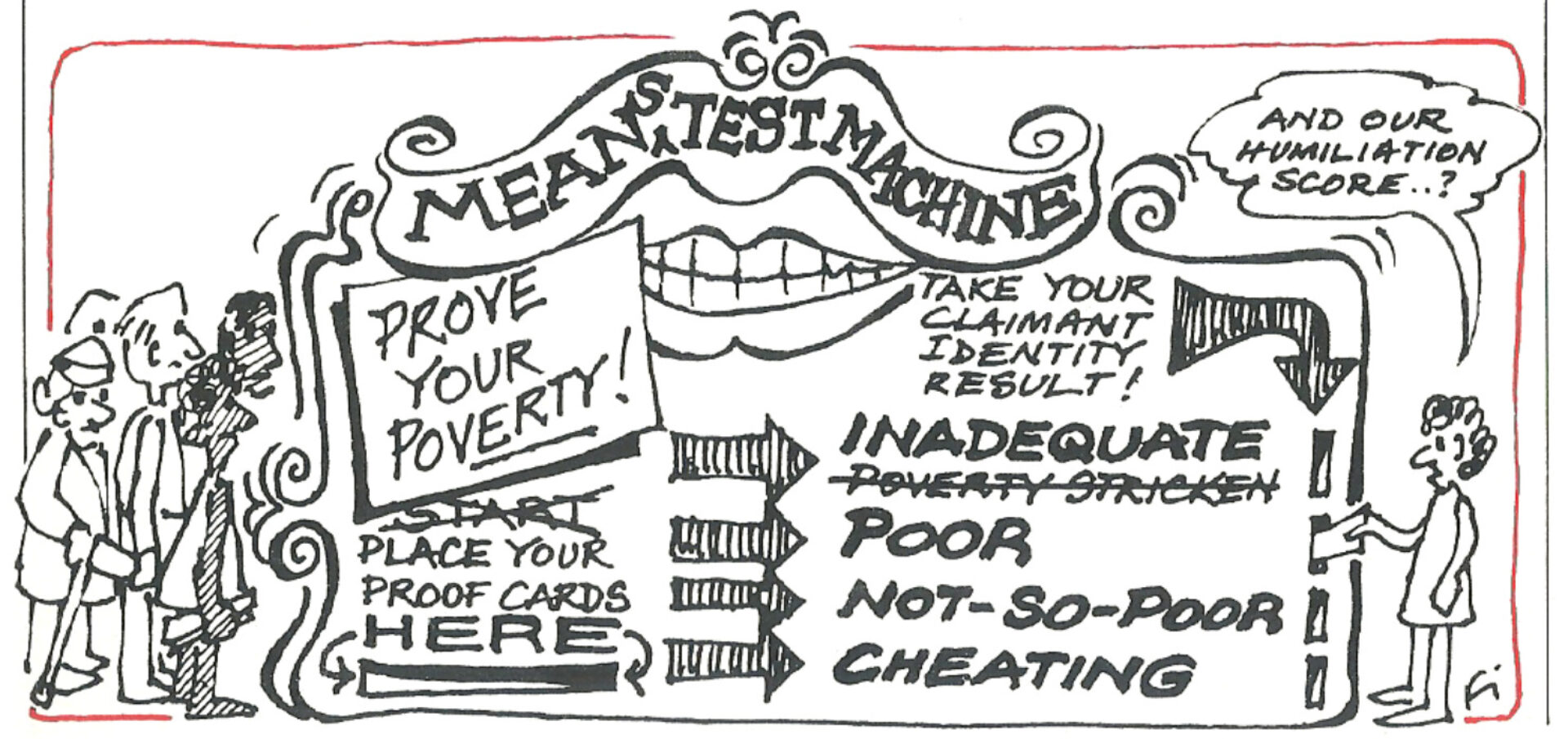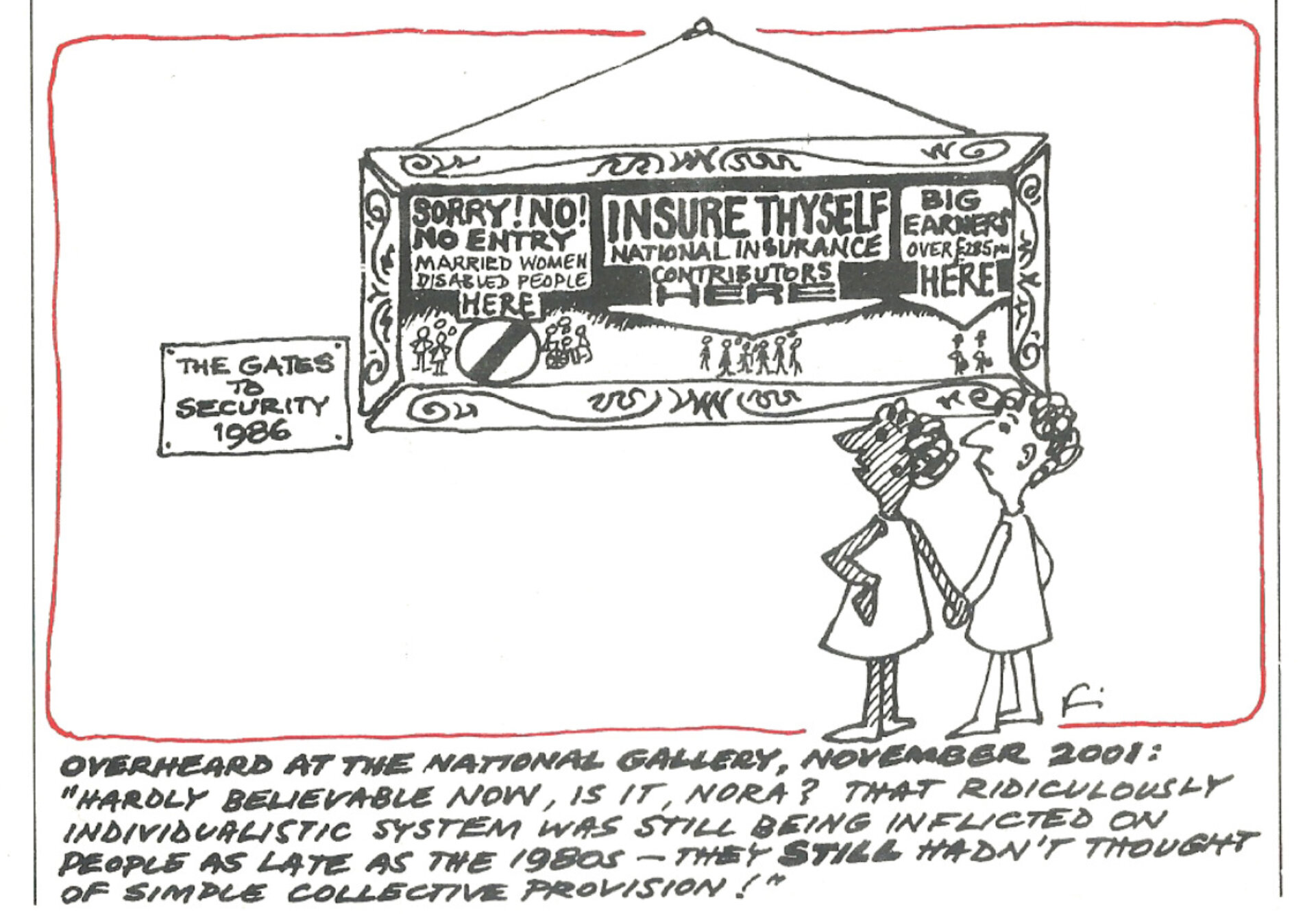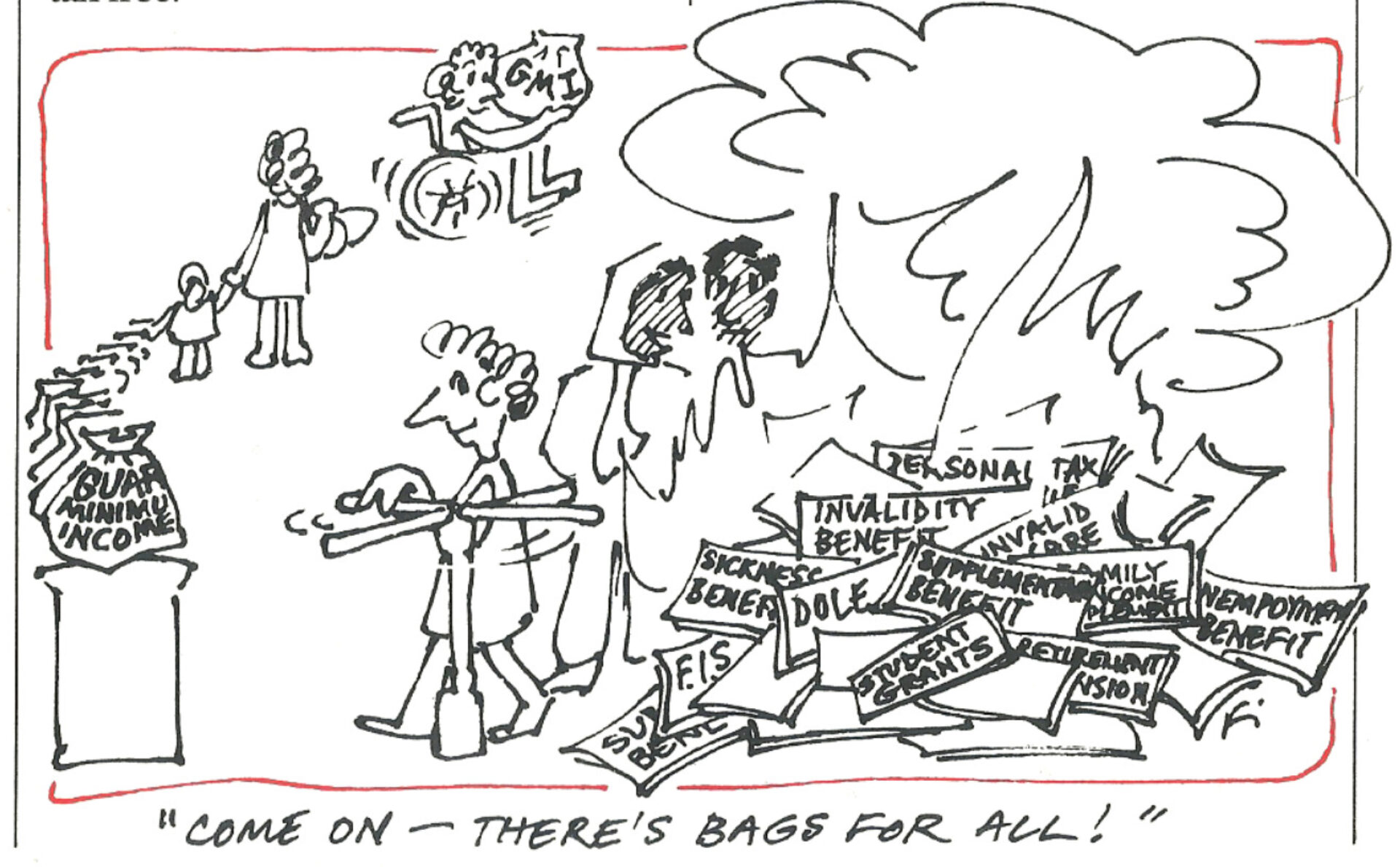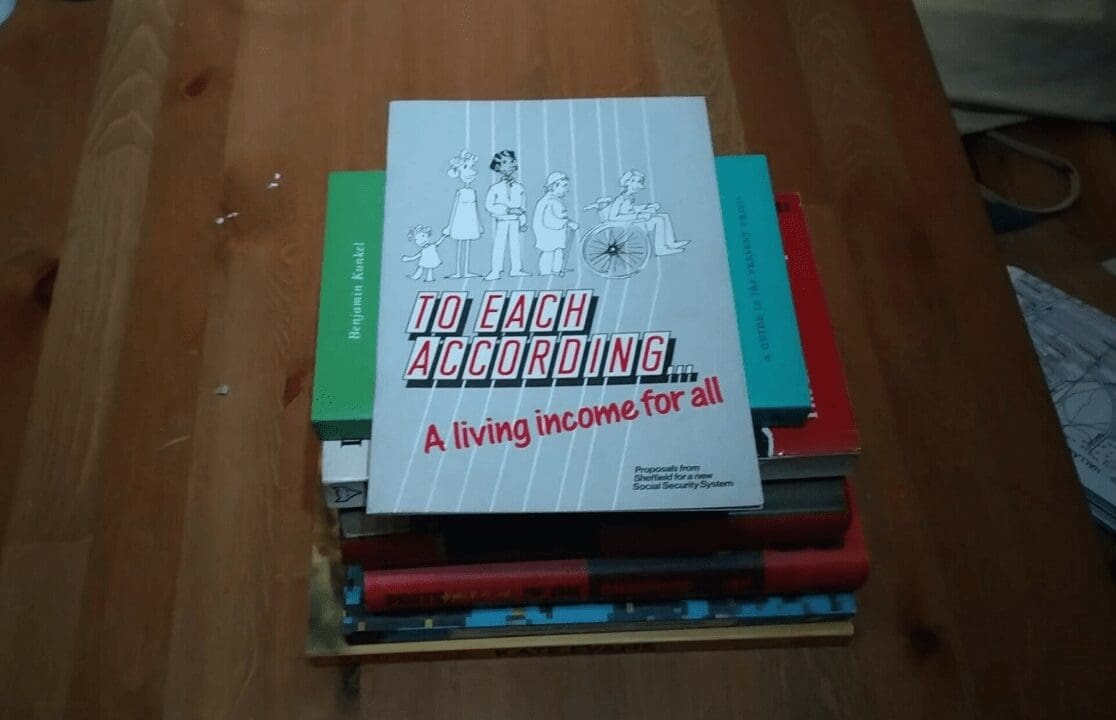Named after a quote from Karl Marx, a leaflet picked up in a second-hand bookshop uncovers an ambitious proposal backed by Sheffield City Council and both universities.
By: Sam Gregory.
Original Post: https://nowthenmagazine.com/articles/long-lost-leaflet-reveals-sheffields-radical-1986-plan-for-a-basic-income-for-all
A leaflet unearthed in a Kelham Island bookshop has revealed a long-lost proposal backed by Sheffield City Council for a Universal Basic Income (UBI).
Written in 1986, the plan calls for a “guaranteed minimum income” for every citizen, replacing large parts of the means-tested benefits system and paid for through higher taxes on the rich.
‘To Each According… A Living Income For All’ is named after a famous quote by Karl Marx, reflecting the febrile political atmosphere in the so-called Socialist Republic of South Yorkshire at the time.”
When I picked this booklet up, I was amazed to see that back in the eighties the council had written such a forward-thinking policy paper,” said Minesh Parekh, a Labour council candidate who found the leaflet in Kelham Island Books and Music.
“It sets out a need for a radical redistribution of wealth, and explains how giving everyone a liveable income and having maximum rent prices would tackle poverty and inequality.”

Universal Basic Income – called a ‘Guaranteed Minimum Income’ in the document – is a regular payment given automatically to all citizens regardless of income, wealth or work.
As well as different departments of the council, the working group who put the 1986 proposal together included the University, the Polytechnic (now Hallam University) and dozens of voluntary groups across the city.

Their plan calls for UBI to replace a host of means-tested benefits from the Thatcher era that have since been scrapped, including Invalidity Benefit and the Family Income Supplement.
The group also advocate extra payments for people with children and those with higher costs relating to disability.
“This is a very radical proposal as it challenges the link between income and wages,” say the document’s authors, anticipating criticism that is levelled against UBI proposals to this day.
“But we believe that because it points towards income equality it should be in the forefront of all our thinking about benefits and income distribution. It is the yardstick by which any interim reforms should be measured.”
The statement stands in stark contrast to the Thatcher government’s policies at the time, which saw the benefits system and other public services cut while inequality soared.
“This is a very radical proposal as it challenges the link between income and wages”
The leaflet includes a number of satirical cartoons. One features a funfair-style “means-test machine”, while another imagines the infamous DHSS (Department of Health and Social Security) administering UBI payments instead, rechristening it “the Department of Heavenly Simple Systems”.

A sketch shows a same-sex couple holding hands in November 2001 – 15 years after the leaflet was published – wondering why a means-tested benefits system was “still being inflicted on people” as late as the 1980s.
In 1986 Sheffield was a hotbed of radical politics under the leadership of future Home Secretary David Blunkett, with the council flying the red flag from the Town Hall on May Day and opening The Anvil, a publicly-owned arthouse cinema.
Bus fares were reduced to 10p – the lowest in the country – and local leaders had hoped to scrap them entirely before buses were deregulated by the government in 1986.

Lord Blunkett told Now Then that the leaflet “took him back”, adding that the principles for a new welfare system outlined by the working group were “still totally relevant today”.
“Later, when Gordon Brown introduced the tax credit system, a substantial part of the objective was achieved – albeit temporarily,” he said.
“I have become convinced that complete ‘universality’ is not achievable, as there is great resistance – as illustrated six years later in the 1992 general election – to cash transfers which involve money being moved about by government not to met a specific need, but simply to equalise basic income.”
In 1992 the newly-formed Liberal Democrats fought their first election promising to introduce a ‘Citizen’s Income’ of £12.50 a week for working-age adults – and lost two seats compared to their predecessor parties.
Blunkett added that it was “pleasing to know that campaigners in Sheffield were way ahead of the game, and sad to reflect that we are still fighting the same battles almost 40 years later”.
In recent years Sheffield has again been at the forefront of the movement for a Universal Basic Income. In 2019 the council passed a motion calling for a pilot in the city, becoming the second in the country to do so.

It’s also the birthplace of the UBI Lab Network, a grassroots movement which explores the potential of basic income around the world (like Now Then, UBI Lab Network is an Opus Independents project).
On 22 April a free online event at Sheffield’s Festival of Debate will look at how calls to pilot UBI have gained momentum in Wales and Northern Ireland in recent years.
“Clearly, Sheffield has long been a place to ferment and offer radical solutions to society’s problems,” Parekh told Now Then.
“I think we should consider learning from the past and taking a similar approach to the pamphlet. Rather than tinker around the edges, councils should offer systematic solutions to societal problems.”





















